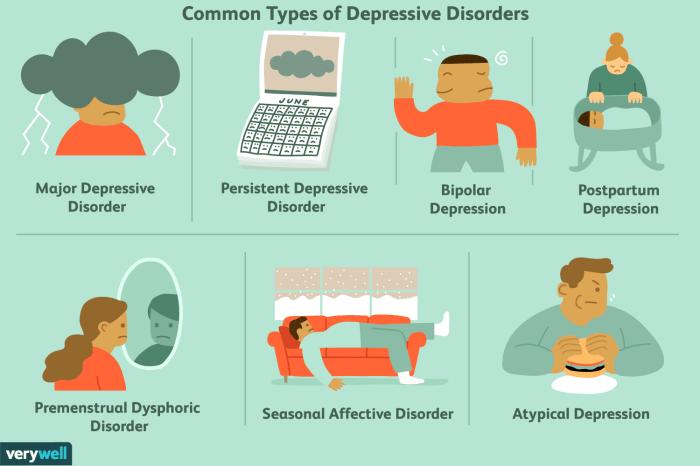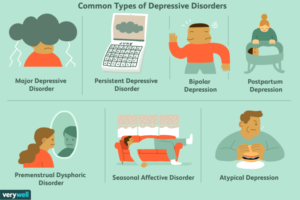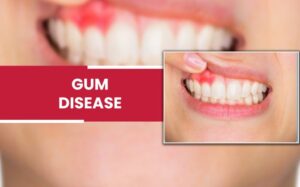
Welcome to the delightful rollercoaster of life, where every twist and turn can lead to unexpected feelings, including that pesky little thing called depression. Think of depression diagnosis as the official detective work that unravels the mystery of your mood swings and emotional roller coasters—no magnifying glass required! As we dive into the criteria and professionals behind this process, hold onto your hats, because we’re about to explore the importance of accurate diagnosis and the wild ride of related health conditions!
Depression diagnosis isn’t just a checkbox activity; it involves healthcare professionals wielding their diagnostic capes, equipped with criteria that help decipher the signs of this complex condition. Misdiagnosis can throw a wrench in the gears of recovery, leading to more confusion than a cat in a room full of laser pointers. Let’s jump into the intricacies of this topic and discover how understanding depression can guide us toward better mental health.
Understanding Depression Diagnosis

Imagine stepping into a world where emotions occasionally decide to take a permanent vacation, leaving you in a dull, gray, and uninspiring landscape. This is the reality for many suffering from depression, a condition that’s as tricky to navigate as a blindfolded game of Twister. Understanding how depression is diagnosed is crucial for getting the right help – and avoiding a misstep that could send you spiraling further down that rabbit hole.Diagnosing depression isn’t just a game of guessing whether someone is feeling sad or binge-watching their favorite series.
It is a serious process involving established criteria, and it requires the keen eyes and trained ears of healthcare professionals. Mental health experts follow specific guidelines, such as those Artikeld in the DSM-5 (Diagnostic and Statistical Manual of Mental Disorders, Fifth Edition), to assess symptoms and determine if a person meets the criteria for a depressive disorder.
Criteria for Diagnosing Depression
To diagnose someone with depression, healthcare professionals look for a specific set of symptoms that must be present for at least two weeks. These symptoms can deeply impact daily functioning and can include the following:
- Persistent sadness or low mood that feels like a heavy blanket you just can’t shake off.
- Loss of interest or pleasure in activities that were once enjoyable, like eating your favorite taco or belting out 90s boy band hits.
- Significant changes in appetite or weight, either gaining or losing pounds faster than a magician can pull rabbits from a hat.
- Insomnia or excessive sleeping, where your bed becomes an attraction far more appealing than any Netflix series.
- Fatigue or loss of energy that makes even lifting a finger feel like an Olympic sport.
- Feelings of worthlessness or excessive guilt that cling like a stubborn piece of gum.
- Difficulties in concentrating or making decisions, akin to trying to solve a Rubik’s Cube blindfolded.
- Recurrent thoughts of death or suicide, which are serious and warrant immediate help.
Each of these criteria is essential in painting a portrait of the individual’s mental health landscape, allowing healthcare professionals to provide the appropriate support and treatment.
Role of Healthcare Professionals in Diagnosis
The diagnosing of depression is not a solo endeavor; it involves a team of professionals working together like an intricate dance routine. Psychologists, psychiatrists, and licensed counselors all play a role in assessing patients. Their toolkit includes comprehensive interviews, psychological evaluations, and sometimes a screening questionnaire, which might feel like a pop quiz for your mental state. Healthcare professionals are trained to listen for nuances in your feelings, behaviors, and thoughts, helping to differentiate between various types of depression and ruling out other medical conditions.
Their expertise is vital in ensuring that the diagnosis is accurate and tailored to the individual, rather than a one-size-fits-all approach.
Potential Impact of Misdiagnosis
Misdiagnosis in depression can be as disastrous as mistaking a cat for a dog – it just doesn’t work out well. An incorrect diagnosis can lead to inappropriate treatments, wasted time, and a worsening of the individual’s mental health. If a person is mistakenly diagnosed with major depression when they actually have a different condition, such as bipolar disorder, the prescribed treatments could exacerbate symptoms.
The impact extends beyond just the individual; it can ripple through their relationships and overall quality of life. For instance, misdiagnosing someone might lead them to believe that they are simply unable to cope, when in reality, their symptoms may require a different approach. Proper diagnosis and timely intervention can not only improve outcomes but also provide a sense of hope and understanding that many desperately need.
The accuracy of a depression diagnosis is the first step toward restoring balance and clarity in a person’s emotional world.
Depression and Related Health Conditions

Depression is a complex and multifaceted mental health condition that doesn’t just stop at the mind; it often drags along a few uninvited guests from the physical realm. Understanding how depression intertwines with various health conditions can shed light on the challenges individuals face daily. Let’s unravel the connections, shall we?
Link Between Depression and Asthma
Asthma and depression might seem like an odd couple, but they actually have a lot in common—besides both being able to leave you gasping for breath, that is. Research suggests that individuals with asthma are more likely to experience depressive symptoms. The relationship can be a vicious cycle: asthma can lead to feelings of helplessness and anxiety, which in turn can exacerbate asthma symptoms.
This is particularly frustrating because, as any asthmatic would tell you, a panic attack can feel like a sudden asthma attack, even if it’s just a little stressful situation like… oh, I don’t know, speaking in public?
“The emotional strain of living with a chronic illness like asthma can leave individuals feeling trapped in a cycle of physical and emotional distress.”
Effects of Depression on Individuals with Autism
The journey of individuals with autism can be challenging enough without the added burden of depression. Studies show that those on the spectrum often face higher rates of depression compared to their neurotypical peers. The reasons are many: social isolation, difficulties with communication, and sensory overload can all contribute to feelings of sadness and despair. It’s like being in a never-ending game of hide-and-seek, where the only thing that keeps hiding is joy.
For individuals with autism, the signs of depression can manifest in various ways, such as changes in behavior, increased irritability, or withdrawal from activities they once enjoyed. Awareness and understanding from caregivers and communities can play a pivotal role in addressing these mental health challenges.
Relationship Between Chronic Pain and Depression
Chronic pain and depression are like two sides of a coin, flipping back and forth, each influencing the other. Take back pain, for instance; it’s not just a physical nuisance but a sneaky little thief that can rob you of your happiness. The continuous discomfort can lead to frustration and helplessness, which may spiral into depressive symptoms. Conversely, depression can amplify the perception of pain, making it feel more intense than it actually is.
This relationship can lead to a downward spiral where the individual feels trapped in both physical and emotional distress. Here’s a fun fact: in one study, it was reported that around 50% of individuals with chronic pain also experience depression. That’s a lot of people caught in the loop of pain and gloom!
“Understanding the interconnectedness of chronic pain and depression is essential for effective treatment and support.”
The impact of these health conditions on depression is profound and underscores the importance of comprehensive treatment that addresses both physical and mental health. After all, no one should have to face the dual burden of battling depression and managing chronic conditions alone!
Holistic Approaches to Managing Depression
Holistic approaches to managing depression involve treating the mind and body as an interconnected whole. Embracing these methods can promote mental wellness by addressing not just the symptoms of depression but also its root causes. By integrating detoxification methods, lifestyle modifications, and the often-overlooked importance of dental care, individuals can cultivate a comprehensive strategy for mental health.
Detoxification Methods Beneficial for Mental Health
Detoxification isn’t just for those juice enthusiasts or weekend warriors; it can also be a powerful tool in managing mental health. By cleansing the body of toxins, one may experience a lift in mood and mental clarity. Here are some effective detox methods to consider:
- Water Fasting: A short period of consuming only water can help flush out toxins and reset the body. It’s like giving your insides a spa day!
- Herbal Teas: Sipping on detoxifying herbal teas like dandelion or green tea can support liver function and keep your mind as clear as a sunny day.
- Sauna Sessions: Sweating it out in a sauna helps eliminate toxins through the skin, while also providing a relaxing ambiance perfect for contemplating life’s mysteries.
- Juicing: A blend of fruits and vegetables can rejuvenate your system, making you feel as fresh as a morning dew.
- Mindful Breathing: Practicing deep breathing can help eliminate stress toxins. Inhale positivity, exhale negativity—just like a yoga guru!
Lifestyle Modifications for Reducing Symptoms of Depression
Implementing certain lifestyle changes can significantly reduce the symptoms of depression. Transformations don’t have to be drastic; sometimes, small adjustments can yield big results. Here’s a list of lifestyle modifications that can brighten your day:
- Regular Exercise: Physical activity releases endorphins, those lovely little chemicals that make you feel like dancing on a cloud.
- Balanced Diet: Consuming a variety of nutrients from fruits, veggies, and whole grains can provide the brain with the fuel it needs to stay cheery.
- Sleep Hygiene: Establishing a regular sleep schedule can work wonders for mood stability. Think of it as your nightly reboot!
- Social Connections: Maintaining relationships and spending time with friends can provide emotional support and reduce feelings of isolation.
- Mindfulness and Meditation: Practicing mindfulness can help clear the mental fog, allowing for a brighter and more present you.
Importance of Dental Care in Relation to Overall Mental Health
Believe it or not, your pearly whites can influence your mental health! Dental care is an essential aspect of overall well-being that often gets overshadowed. Poor oral health can lead to pain and discomfort, which can exacerbate feelings of depression. Here’s why taking care of those chompers matters:
- Physical Health Connection: Gum disease and inflammation can negatively impact mood. Keeping your mouth healthy can lead to a happier mind.
- Boosting Self-Esteem: A bright, healthy smile can enhance self-confidence, helping you to face the day with more gusto.
- Regular Check-Ups: Visiting your dentist can prevent problems before they escalate, allowing for peace of mind and less anxiety. Think of it as mental health insurance!
- Link Between Oral Health and Diet: Healthy teeth make it easier to enjoy nutritious foods that bolster mental health. Crunching on carrots never felt so good!
Closing Notes
So there you have it—the captivating saga of depression diagnosis! From the criteria used by healthcare professionals to the unexpected connections with conditions like asthma and chronic pain, it’s clear that understanding depression is no small feat. But fear not! Armed with knowledge, holistic approaches, and a sprinkle of humor, we can combat the murky waters of depression diagnosis and sail toward brighter days.
Remember, it’s all about finding the right support and making those lifestyle tweaks, so you can get back to enjoying life’s quirky adventures!
Common Queries
What are the common symptoms of depression?
Common symptoms include persistent sadness, loss of interest in activities, fatigue, changes in appetite, and difficulty concentrating.
How can I find a qualified professional for diagnosis?
Look for licensed psychologists, psychiatrists, or mental health professionals with experience in mood disorders.
Can depression be diagnosed without a physical exam?
While a physical exam can help rule out other conditions, a mental health assessment can often be done through interviews and questionnaires.
Is depression more than just feeling sad?
Absolutely! Depression encompasses a range of emotional and physical symptoms that can impact daily functioning.
How long does the diagnosis process usually take?
The process can vary; a thorough evaluation may take one or more sessions, depending on the complexity of the case.





